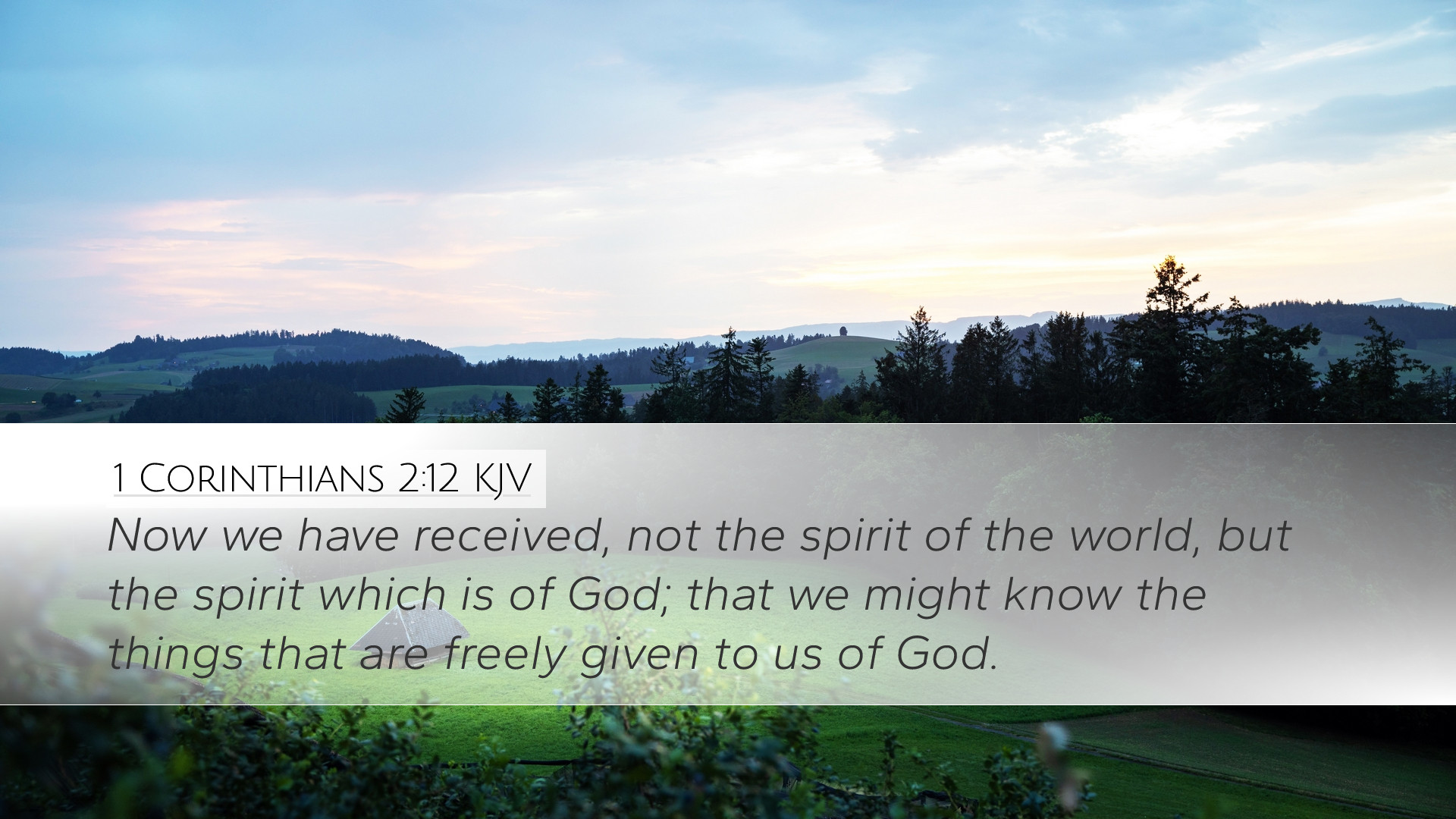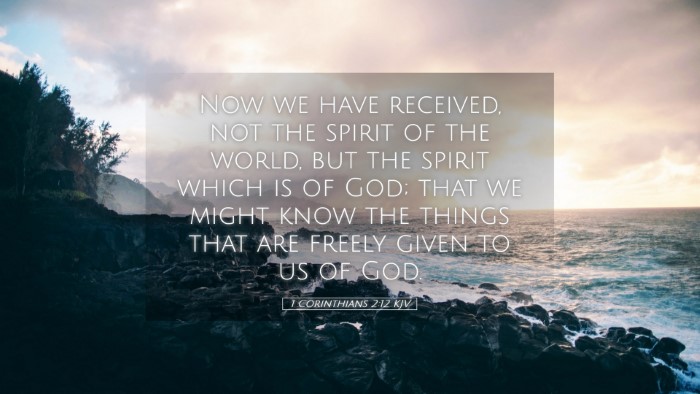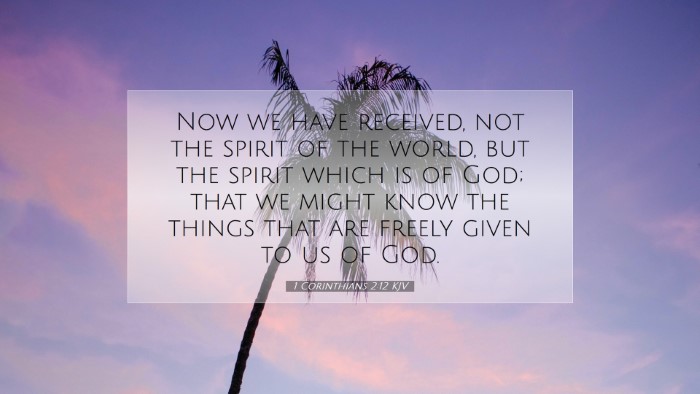Commentary on 1 Corinthians 2:12
Verse: "Now we have received, not the spirit of the world, but the spirit which is of God; that we might know the things that are freely given to us of God."
Introduction
The Apostle Paul, in this passage from his letter to the Corinthians, draws a stark contrast between the wisdom imparted by the world and the wisdom bestowed by the Holy Spirit. This verse encapsulates the essence of spiritual discernment and the divine revelation granted to believers. Commentaries by renowned theologians such as Matthew Henry, Albert Barnes, and Adam Clarke provide further insight into the meaning and implications of this significant text.
Exegesis and Thematic Analysis
In understanding 1 Corinthians 2:12, it is crucial to contextualize it within the broader themes of the epistle. The Corinthian church was facing issues of division, wisdom, and spiritual arrogance. Paul emphasizes the necessity of understanding God's gifts through the lens of the Holy Spirit.
Matthew Henry's Insight
Matthew Henry highlights that the "spirit of the world" represents worldly values and knowledge that can lead to spiritual folly. He stresses that the Christian faith is not based on human wisdom but on spiritual truth revealed by God. Henry explains:
- Divine Revelation: The knowledge of God’s gifts is not accessible through human reasoning but must be revealed by the Holy Spirit.
- Contrast of Spirits: There is a significant dichotomy between the spirit that leads to confusion and unrest and the Spirit of God, which brings peace and understanding.
- Gifts of God: The "things that are freely given" are those gracious gifts of salvation, wisdom, and knowledge, which illuminate the believer’s path.
Albert Barnes' Commentary
Albert Barnes emphasizes the necessity of receiving the Holy Spirit in order to comprehend spiritual truths effectively. He elaborates on the implications of this verse for believers:
- Gift of the Holy Spirit: Barnes stresses that receiving the Holy Spirit is foundational for all believers, enabling them to grasp the depths of God’s grace and purpose.
- Rejection of Worldly Wisdom: The verse is a clear admonition against reliance on the philosophies and teachings of the secular age, which often leads to misunderstanding God's will.
- Understanding God’s Gifts: Knowledge of divine gifts comes not from academic learning but rather through the illumination of the Holy Spirit, which leads to a true understanding of God's nature.
Adam Clarke’s Perspective
Adam Clarke approaches the text with an emphasis on the transformative aspect of receiving the Spirit of God. He asserts:
- Spiritual Awakening: Clarke notes that the Holy Spirit awakens the believer’s intellect to perceive spiritual realities that remain hidden from those without the Spirit.
- Encouragement for Believers: The verse serves as an encouragement that believers possess a unique insight into life’s complexities, rooted in their relationship with God.
- Free Gifts: Clarke underscores the notion of "freely given" as an expression of God’s grace, showing that these gifts are unearned and provided out of divine mercy.
Theological Implications
This verse holds rich theological significance for pastors, students, and scholars. It emphasizes:
- The Nature of Revelation: Understanding that divine truth is not made known through human intellect but is communicated through the Spirit establishes the foundation for theological inquiry.
- Christian Identity: The contrasting spirits mentioned in the passage help to form a believer’s identity, distinguishing them from the secular world.
- The Role of the Holy Spirit: The necessity of the Holy Spirit in knowledge underscores the transformative nature of God’s presence in a believer’s life.
Practical Applications
From this commentary, several practical applications emerge for those in ministry and study:
- Seek Spiritual Discernment: Encourage active seeking of the Holy Spirit’s guidance in understanding scripture, emphasizing prayer as a means of engaging with God.
- Dispel Worldly Wisdom: Teach congregants to critically evaluate philosophies and teachings of the world, ensuring that their faith is rooted in biblical truth.
- Celebrate God’s Gifts: Foster an attitude of gratitude for God’s free gifts, encouraging believers to recognize and proclaim the blessings they have received.
Conclusion
1 Corinthians 2:12 serves as a pivotal reminder of the importance of spiritual understanding and the divine guidance of the Holy Spirit in a believer’s life. The insights drawn from the commentaries of Matthew Henry, Albert Barnes, and Adam Clarke provide a profound depth to the meaning of this verse, helping us to grasp the contrast between the two spirits and to appreciate the incredible gifts that God freely bestows upon His children.


